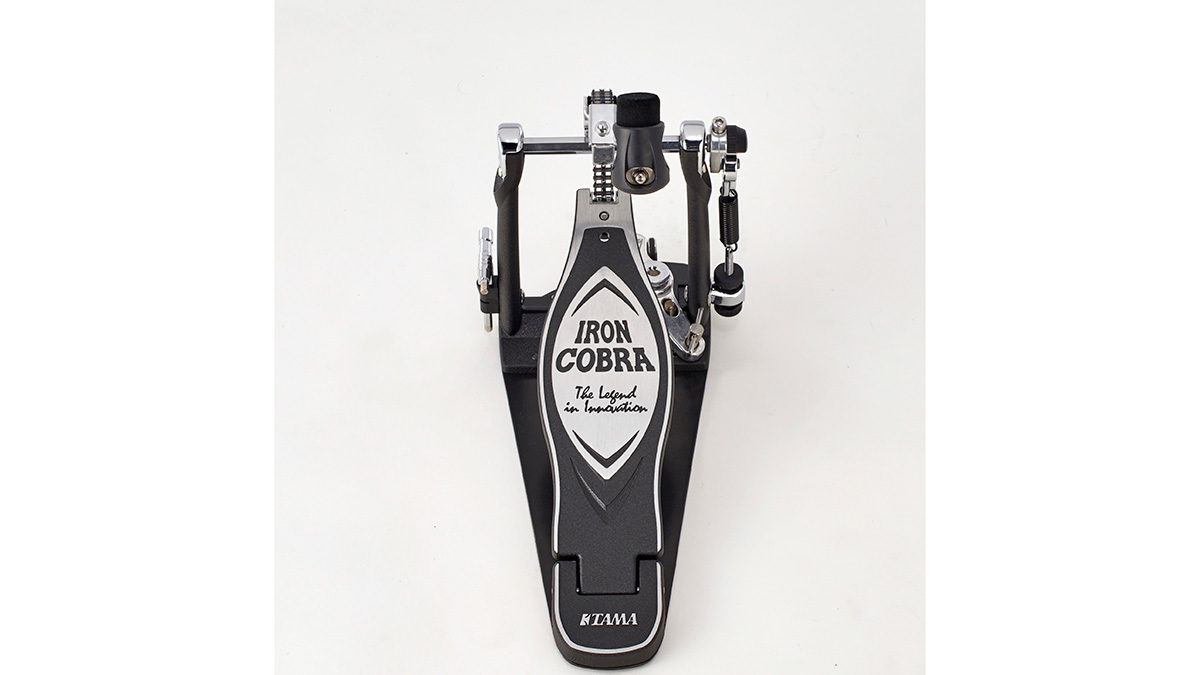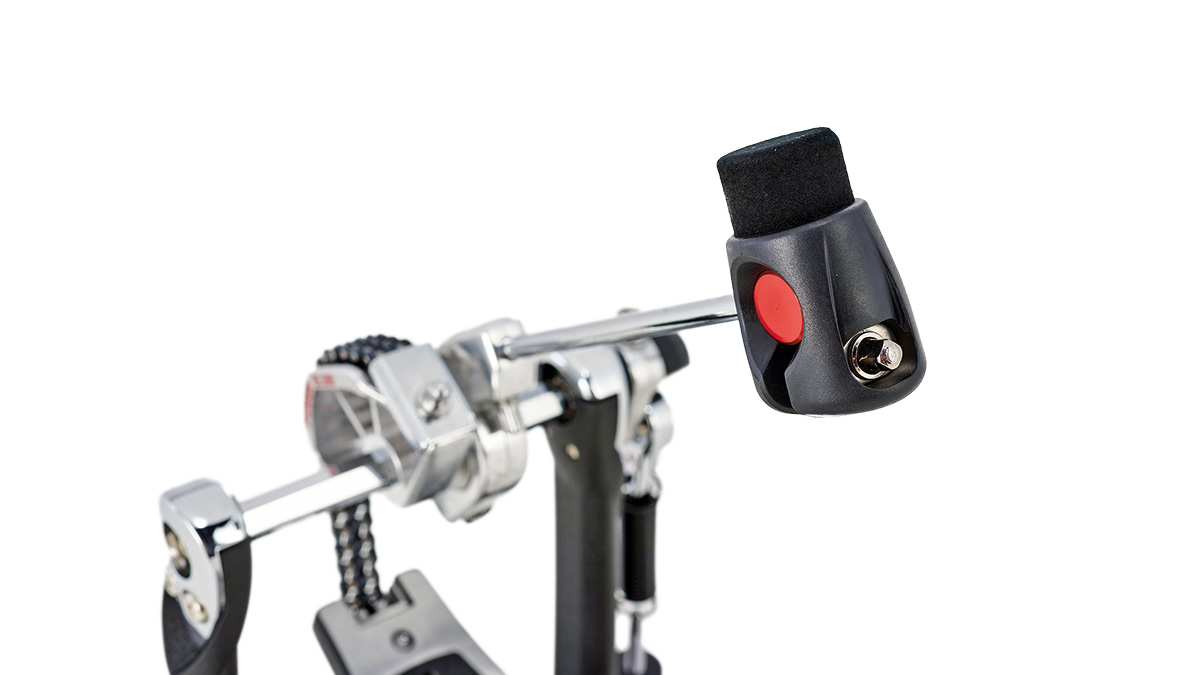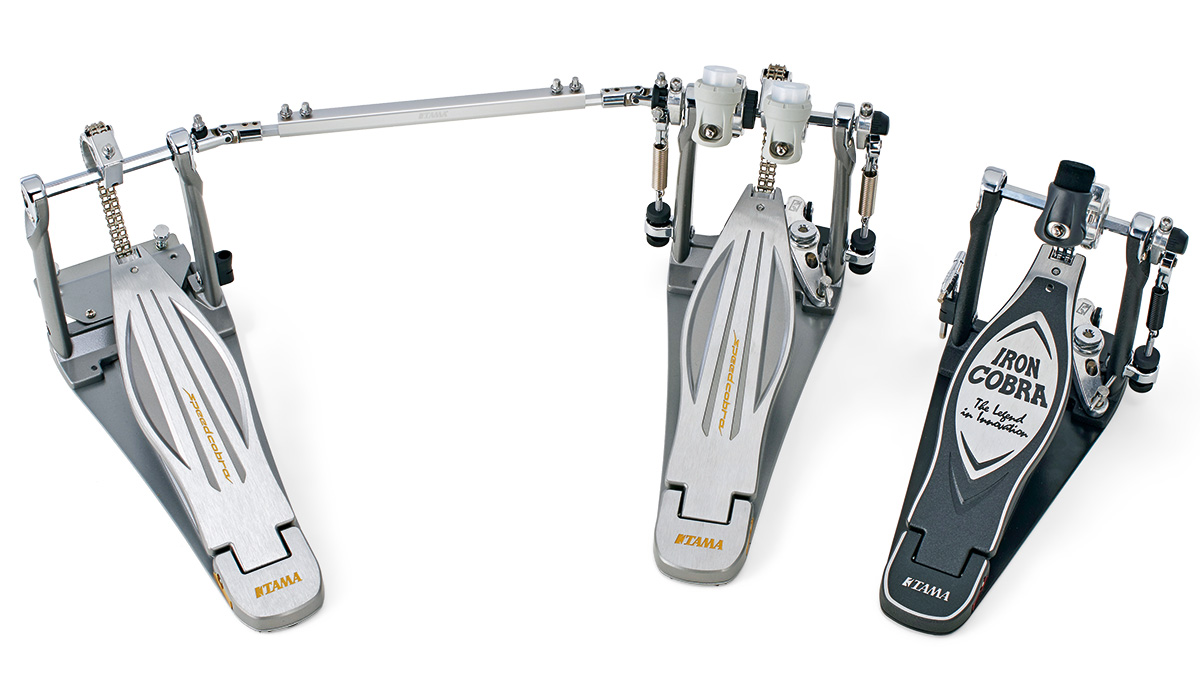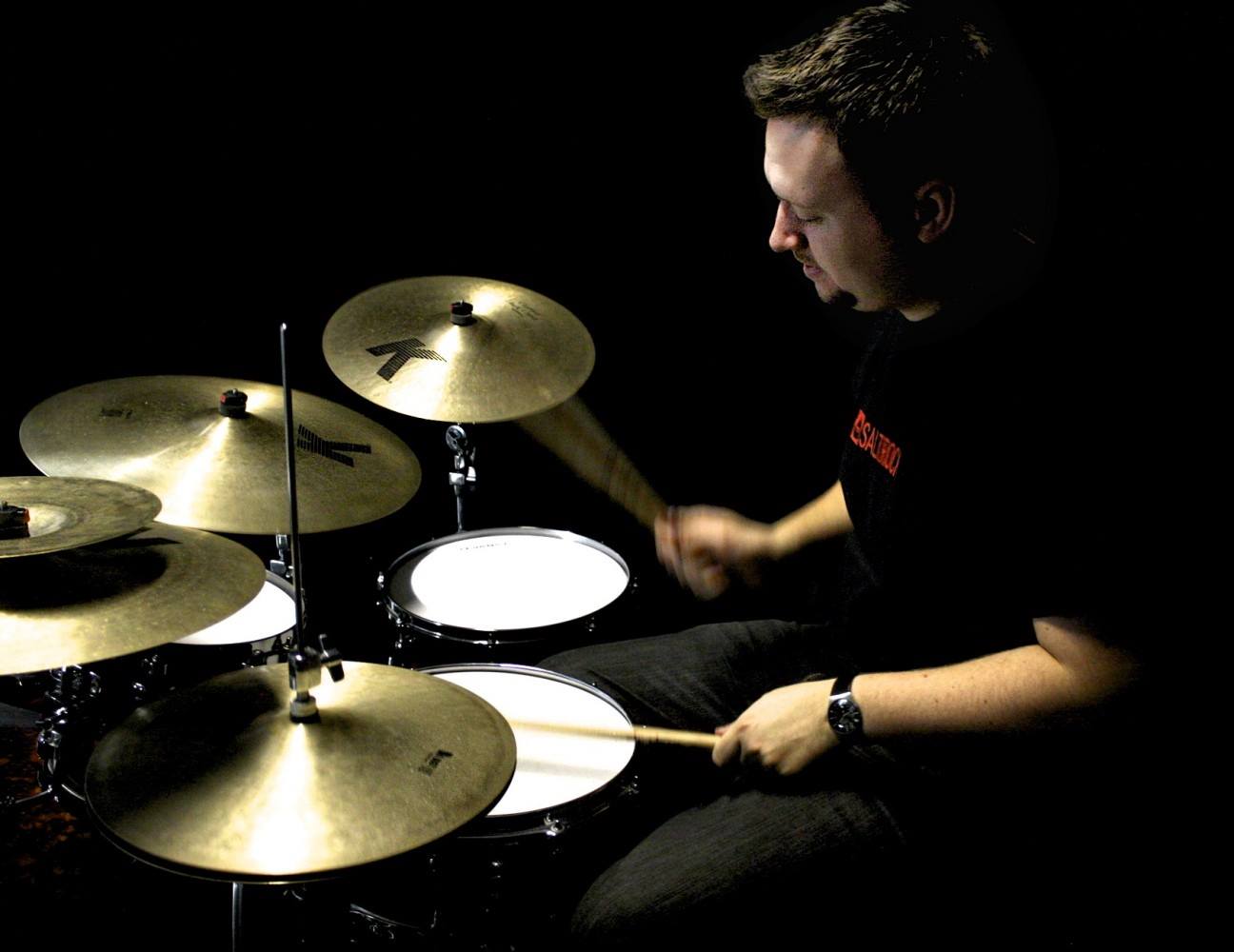MusicRadar Verdict
Tama has once again excelled itself with the upgraded Cobra family.
Pros
- +
Fantastic tweaks to already superb pedal.
Cons
- -
None.
MusicRadar's got your back

Tama Iron Cobra Bass Pedal

Tama Iron Cobra Bass Pedal

Tama Iron Cobra Bass Pedal
It's been almost 25 years since Japanese drum and hardware giant Tama set out to create "the ultimate bass drum pedal".
Since then the Iron Cobra pedal has continued to evolve and improve to meet not only the demands of the modern drummer, but also its clear mission statement: "rock solid strength and versatility". So, how will the newest version compare to its much revered predecessors?
Build
At a glance, one could be forgiven for assuming that there is nothing particularly new and noteworthy on the new Iron Cobra pedal. The truth is though, as ever there are a host of improved features on board the brand new pedal.
The width of the pedal has been modified with the aim of completely eliminating any chance of side to side movement. The whole frame has been widened by 15mm from the previous model, along with 12mm in the baseplate.
The first thing to catch your eye with the new model will likely be the new beater design. The beater faces have a considerably smaller diameter than a regular sized beater (the size of 10p piece) yet are a lot deeper.
The Power-Strike beater on the Iron Cobra uses a dense black foam which Tama claims will deliver a punchy low to mid frequency response from the bass drum.
As ever with Iron Cobra beaters, the angle of the face is adjustable to ensure a square contact on the drum head. The mechanism that attaches the pedal to the hoop has been completely overhauled (again for both pedals) which adds further support and stability to the pedal.
Want all the hottest music and gear news, reviews, deals, features and more, direct to your inbox? Sign up here.
The 'Para Clamp II Pro' has the ability to pivot quite freely in position which should help get a good fit from almost any angle using less pressure. It also has a much thicker coating of rubber which reduces, if not completely eliminates, marring.
Another upgrade that the Iron Cobrahas been treated to is the Lite Sprocket. Originally exclusively a Speed Cobra feature, it has 40 percent less mass than the previous cam mechanism making the action feel smoother and lighter.
Saving the best until last, the real magic that takes place in the mechanical department has to be the innovative swivel spring. This feature allows the bottom of the spring to move back and forward in a pendulum-type fashion as the cam moves at its top.
This means that the spring is always completely in-line with itself, resulting in less wasted energy and 'turbulence'. Tama claims that this will make the pedal smoother and result in an improved stroke.
In addition, the pedal is double chained, comes with proprietary hard plastic carry case and features the patented Cobra Coil.
The Iron Cobra is available in the usual Power Glide (as review) and Rolling Glide options. It is also available in a double pedal model.
Hands On
For review we have a single Rolling Glide Iron Cobra. Without a shadow of a doubt, this pedal is impossible to fault. The Iron Cobra feels smooth and agile but still manages to provide that familiar weight under-foot.
The sound of the new beater is definitely worth checking out for yourself. The punch they bring to the table is simply immense, especially considering the size. The beater also has a tremendously satisfying feel against the bass drum.
Tom is a professional drummer with a long history of performing live anywhere from local venues to 200,000 capacity festivals. Tom is a private drum tutor, in addition to teaching at the BIMM Institute in Birmingham. He is also a regular feature writer and reviewer for MusicRadar, with a particular passion for all things electronic and hybrid drumming.
